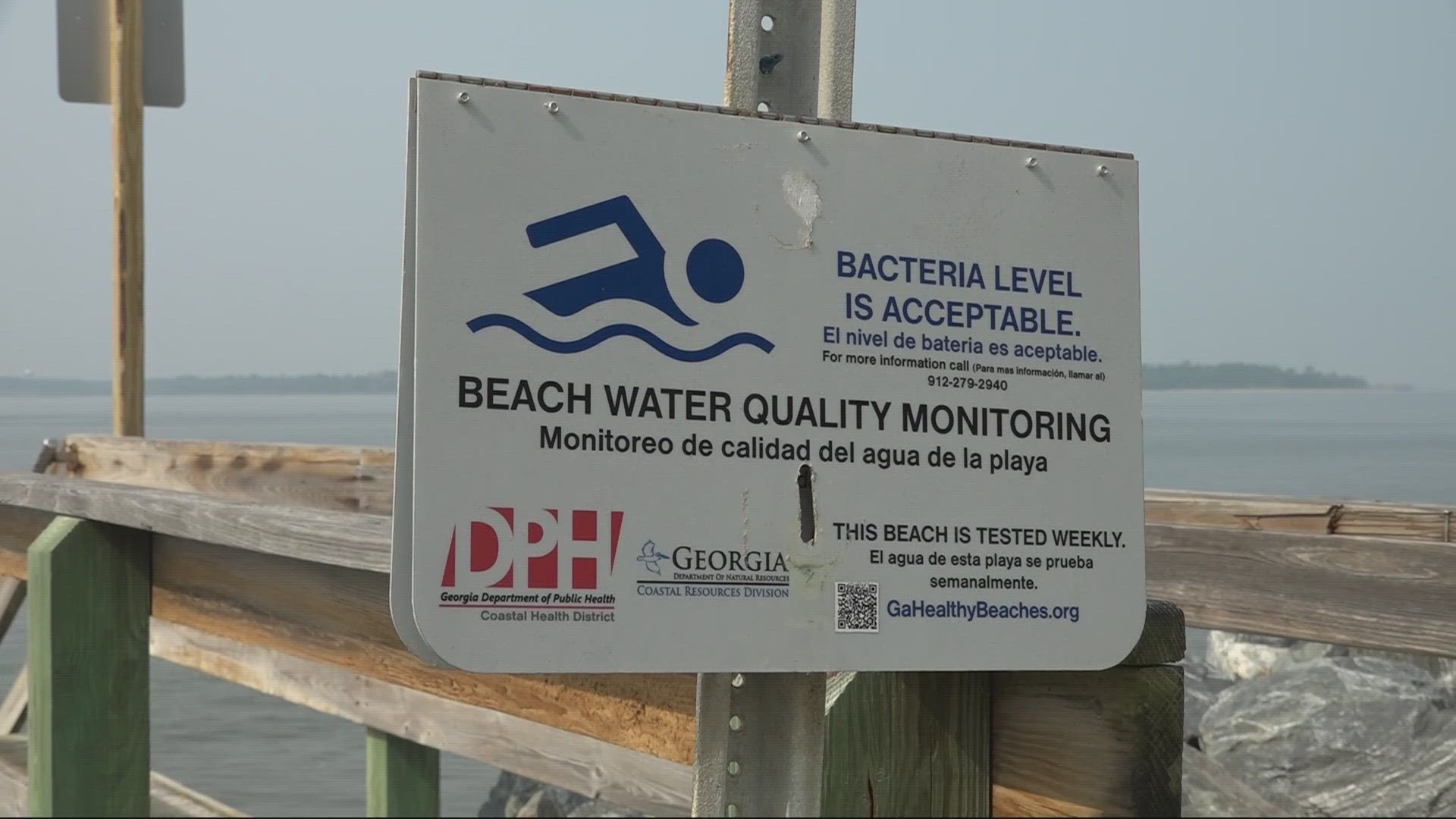GLYNN COUNTY, Ga. — This is something you may want to learn before you head to the beach.
A new report found half of U.S. beaches had potentially unsafe levels of fecal contamination on at least one occasion last year. Locally around the First Coast, the report states beaches with the most potentially unsafe days were in Glynn County.
The report from Environment America combed through data collected by the National Water Quality Monitoring Council. The man who oversees fecal contamination testing at beaches in Glynn County says looking at the numbers is important.
The Environment America report states the beach at 5th Street on St. Simons Island had the highest number of potentially unsafe fecal contamination levels in Georgia last year: eight days out of 53 days of testing. They report Glynn County had six of the top 10 potentially unsafe beach days in Georgia.
Edward Zmarzly, who oversees the Georgia Department of Natural Resources' testing at the beach for enterococcus, bacteria found in feces, says more context is needed.
"In 2022, we tested 777 times on our tier one beaches," Zmarzly said. "Our tier one beaches are found on Jekyll, St. Simons and Tybee. Of those 777 tests, we've only had 23 advisories. That's coming back at like, 97 percent of our tests are coming back fine, safe swimming water."
Zmarzly says the marshes, which are home to Georgia's wildlife, are to blame for fecal matter.
"We've got a couple of beaches on Jekyll that are posted under permanent advisory due to their proximity to a couple of bird rookeries on the north end and south end," Zmarzly said.
Signs are posted at some beach access points, such as the one by the St. Simons Lighthouse, that describes the bacteria level and whether it's "acceptable" or not. You can also find bacteria level information on a map at the Georgia DNR website here.
Zmarzly says it's always important to know the risk when it comes to any bacteria.
"Are you elderly?" Zmarzly said. "Are you immunocompromised? Do you have open wounds? There's a big misconception that saltwater is good for open wounds, it's not."
Data from the Environmental Protection Agency shows the country's beaches were open and safe for swimming 92 percent of the time last year and that number has not really changed in the last five years.

